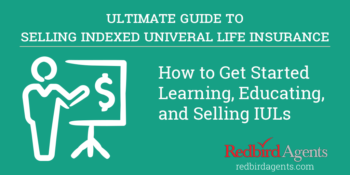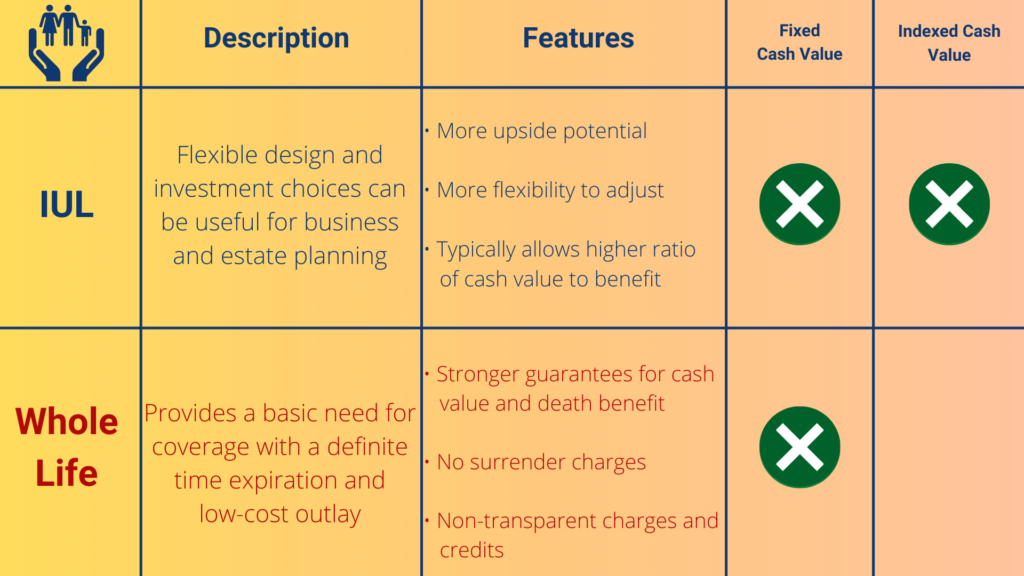All Categories
Featured
Table of Contents
Do they compare the IUL to something like the Lead Total Amount Supply Market Fund Admiral Shares with no lots, an expenditure ratio (ER) of 5 basis points, a turnover proportion of 4.3%, and an extraordinary tax-efficient document of circulations? No, they compare it to some horrible proactively taken care of fund with an 8% lots, a 2% EMERGENCY ROOM, an 80% turn over proportion, and a horrible record of short-term capital gain distributions.
Mutual funds often make annual taxed circulations to fund proprietors, even when the worth of their fund has decreased in worth. Common funds not just call for income reporting (and the resulting yearly tax) when the mutual fund is increasing in value, but can also enforce income taxes in a year when the fund has gone down in value.
That's not how mutual funds function. You can tax-manage the fund, collecting losses and gains in order to decrease taxable circulations to the investors, but that isn't in some way mosting likely to transform the reported return of the fund. Only Bernie Madoff types can do that. IULs stay clear of myriad tax obligation catches. The possession of shared funds may need the common fund proprietor to pay approximated taxes.

IULs are easy to place so that, at the proprietor's fatality, the beneficiary is not subject to either earnings or inheritance tax. The exact same tax obligation decrease techniques do not work almost also with common funds. There are many, typically expensive, tax traps connected with the moment purchasing and selling of shared fund shares, catches that do not relate to indexed life Insurance.
Chances aren't very high that you're going to undergo the AMT because of your common fund circulations if you aren't without them. The rest of this one is half-truths at finest. For example, while it is real that there is no earnings tax obligation as a result of your beneficiaries when they acquire the proceeds of your IUL plan, it is also real that there is no earnings tax obligation because of your successors when they inherit a mutual fund in a taxed account from you.
Indexed Variable Universal Life Insurance
There are far better methods to prevent estate tax concerns than acquiring investments with low returns. Common funds might create income taxation of Social Security benefits.

The growth within the IUL is tax-deferred and may be taken as tax totally free revenue by means of car loans. The policy owner (vs. the common fund supervisor) is in control of his or her reportable earnings, therefore enabling them to decrease or even eliminate the taxes of their Social Protection advantages. This is great.
Right here's an additional minimal problem. It holds true if you purchase a shared fund for say $10 per share prior to the distribution date, and it distributes a $0.50 distribution, you are after that going to owe taxes (probably 7-10 cents per share) although that you have not yet had any gains.
In the end, it's really concerning the after-tax return, not just how much you pay in tax obligations. You're additionally probably going to have more cash after paying those tax obligations. The record-keeping demands for owning mutual funds are substantially much more complex.
With an IUL, one's documents are maintained by the insurer, duplicates of yearly statements are sent by mail to the owner, and distributions (if any type of) are amounted to and reported at year end. This is likewise sort of silly. Of program you should maintain your tax records in instance of an audit.
Eiul Life Insurance
All you have to do is push the paper into your tax obligation folder when it appears in the mail. Barely a factor to acquire life insurance policy. It's like this man has actually never bought a taxed account or something. Shared funds are commonly component of a decedent's probated estate.
Furthermore, they go through the hold-ups and expenses of probate. The proceeds of the IUL plan, on the other hand, is always a non-probate distribution that passes beyond probate directly to one's named recipients, and is as a result not subject to one's posthumous creditors, undesirable public disclosure, or similar delays and costs.
Medicaid incompetency and life time income. An IUL can supply their owners with a stream of revenue for their whole lifetime, regardless of how lengthy they live.

This is beneficial when arranging one's events, and transforming assets to earnings before an assisted living home arrest. Common funds can not be converted in a comparable manner, and are generally thought about countable Medicaid properties. This is an additional foolish one promoting that bad people (you understand, the ones that need Medicaid, a federal government program for the inadequate, to spend for their retirement home) should utilize IUL rather of common funds.
Maximum Funded Universal Life Insurance
And life insurance policy looks dreadful when contrasted relatively versus a pension. Second, people who have money to buy IUL above and beyond their retired life accounts are mosting likely to need to be awful at managing money in order to ever get Medicaid to pay for their retirement home expenses.
Persistent and terminal illness biker. All plans will allow an owner's easy access to money from their plan, commonly forgoing any abandonment penalties when such people endure a major ailment, need at-home treatment, or come to be constrained to a nursing home. Mutual funds do not supply a comparable waiver when contingent deferred sales costs still relate to a mutual fund account whose proprietor requires to sell some shares to fund the expenses of such a remain.
Universal Vs Term Life
Yet you reach pay even more for that benefit (biker) with an insurance coverage. What a large amount! Indexed global life insurance policy supplies fatality benefits to the recipients of the IUL proprietors, and neither the owner nor the beneficiary can ever before lose money due to a down market. Mutual funds give no such warranties or death advantages of any type of kind.
Now, ask on your own, do you in fact require or want a death advantage? I definitely do not require one after I reach economic independence. Do I desire one? I mean if it were cheap sufficient. Obviously, it isn't economical. On average, a purchaser of life insurance pays for real price of the life insurance policy advantage, plus the prices of the policy, plus the earnings of the insurer.
Index Universal Life Insurance Calculator
I'm not entirely certain why Mr. Morais included the entire "you can't lose money" once again below as it was covered rather well in # 1. He simply intended to duplicate the most effective selling point for these things I intend. Once more, you don't lose small dollars, yet you can lose genuine dollars, as well as face significant chance price as a result of low returns.

An indexed global life insurance coverage plan proprietor might exchange their plan for an entirely different policy without activating income taxes. A mutual fund owner can stagnate funds from one shared fund business to another without offering his shares at the previous (hence activating a taxed event), and buying new shares at the latter, commonly based on sales fees at both.
While it holds true that you can trade one insurance coverage for another, the factor that people do this is that the first one is such a terrible policy that even after getting a brand-new one and going through the very early, adverse return years, you'll still come out in advance. If they were sold the ideal policy the initial time, they shouldn't have any wish to ever before trade it and undergo the very early, negative return years once again.
Latest Posts
Books On Indexed Universal Life
Iul Explained
Iul Companies